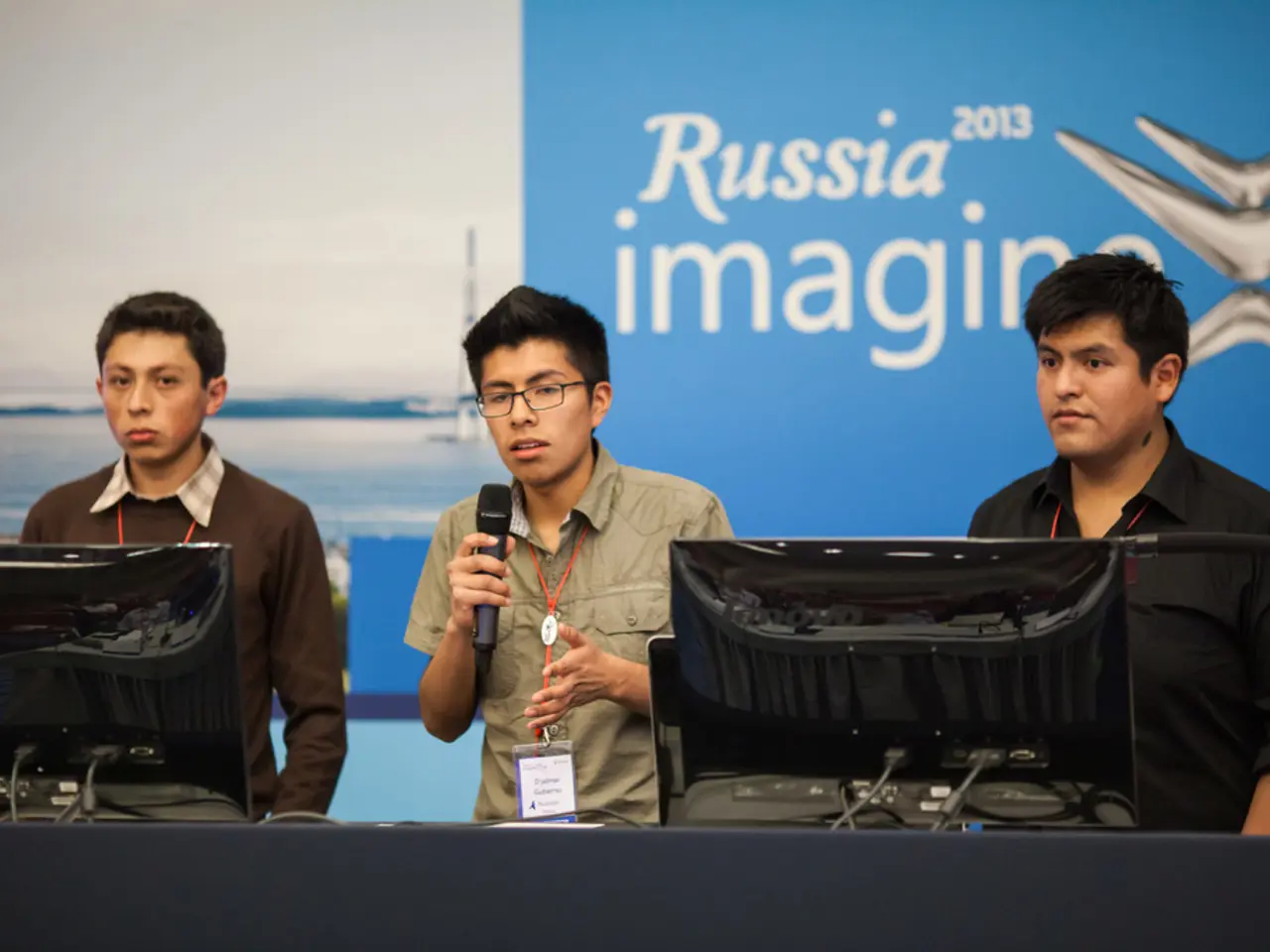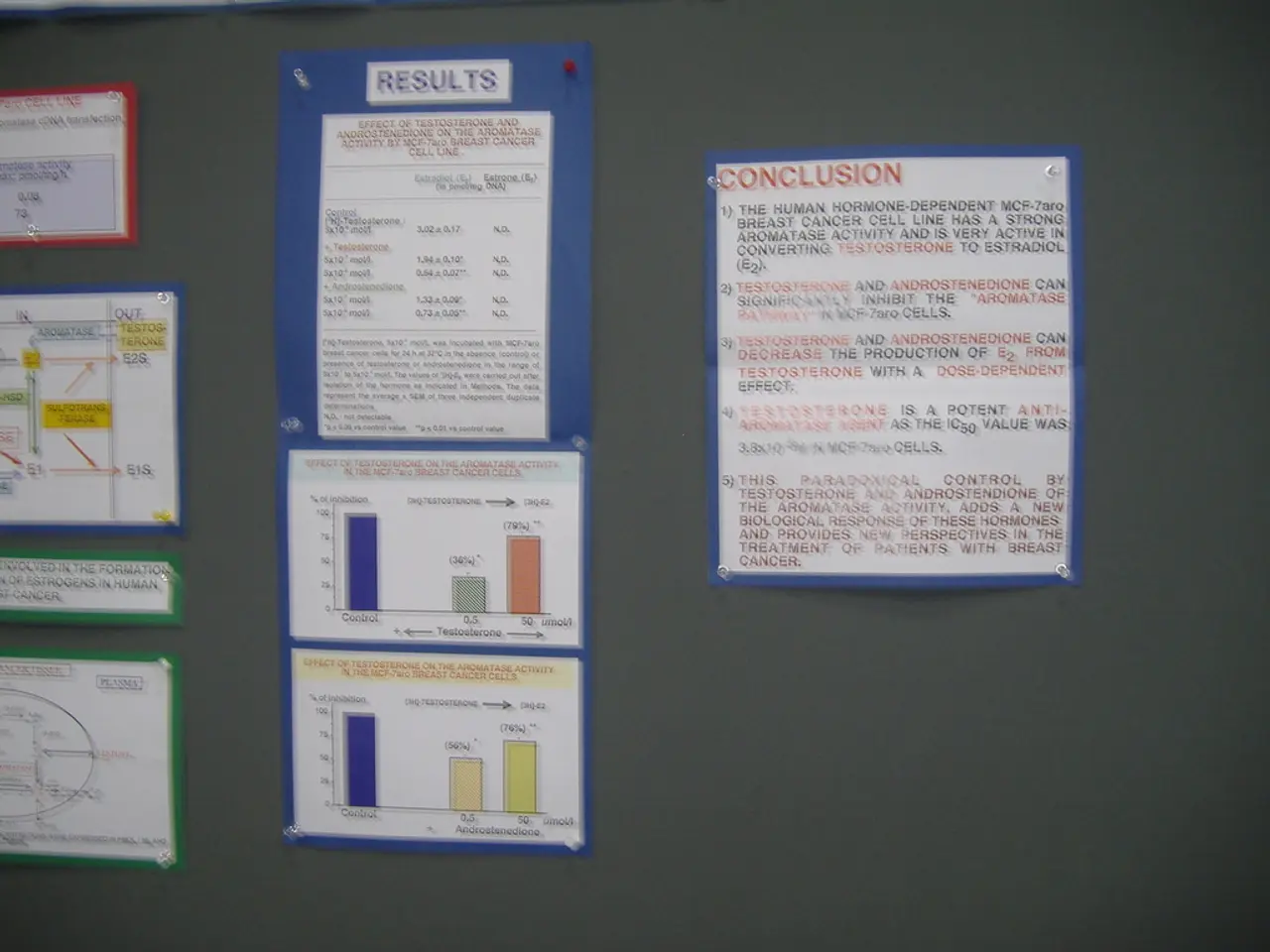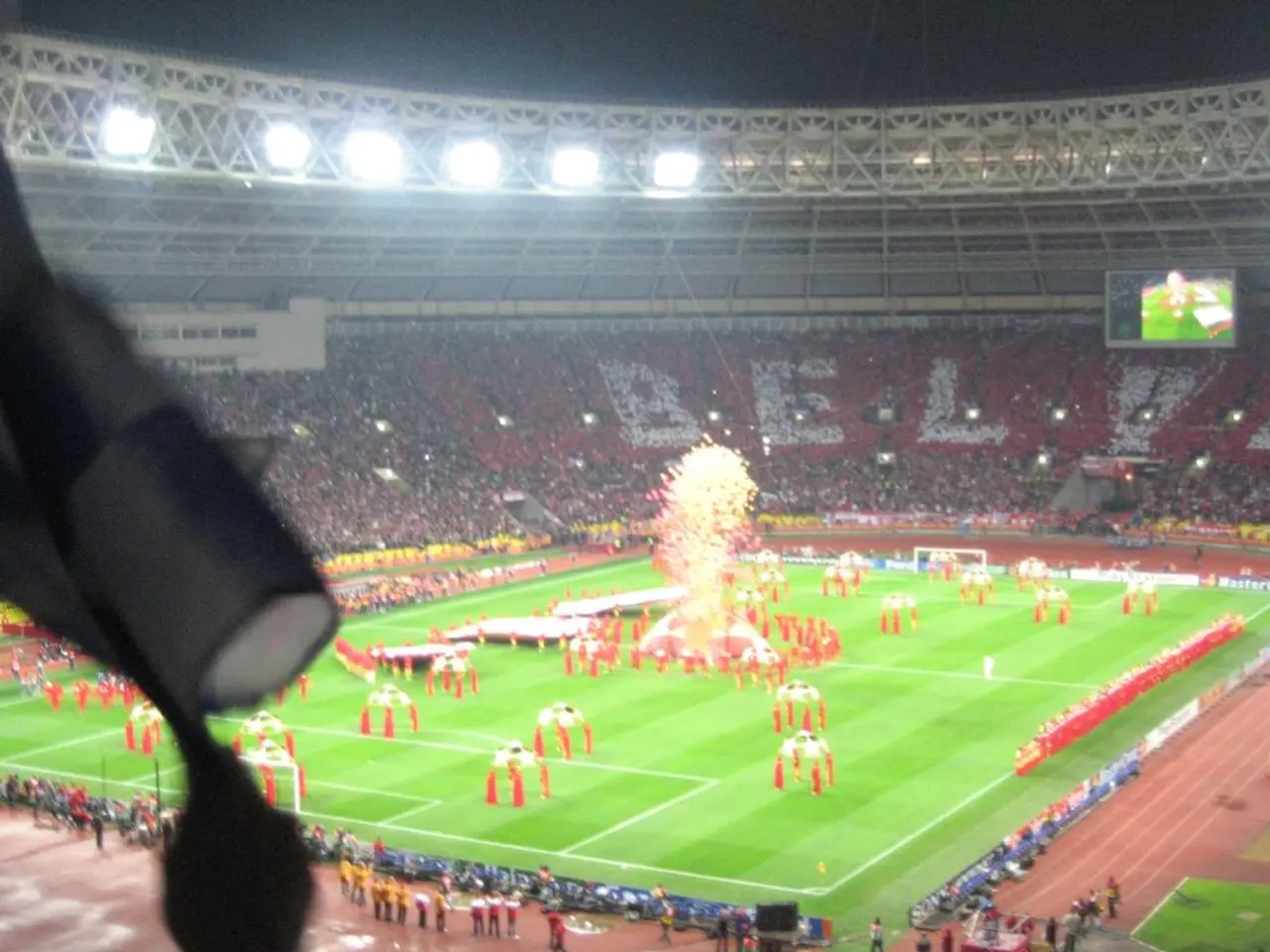A Tough Road Ahead: Russian Economy Minister Warns of Recession Threat Amid Skyrocketing Interest Rates
Russia's Economy Minister foresees the nation teetering on the edge of a recession
Hey there, people! Let's dive into some economic news happening in the land of bears. Maxim Reshetnikov, Russia's Minister of Economy, has raised a red flag, warning that we could be on the brink of a recession after two years of significant growth. He spoke at the Economic Forum in St. Petersburg, stating that numerous businesses are battling financial struggles, largely due to exorbitant interest rates on loans.
Russia's economy had quite the boost in 2023 and 2024, with military spending leading the charge. The economy expanded by 4.1% in 2024 according to official figures. But economists warn that these military expenditures aren't sustainable since they don't reflect genuine productivity gains. The first quarter of 2025 saw only a 1.4% increase in GDP.
Recent weeks have seen a flurry of criticism over high interest rates, with several economic figures and Reshetnikov himself voicing concerns. The central bank's key interest rate hovers at a whopping 20%. The bank is trying to keep a lid on rampant inflation in the country, as consumer prices have been surging for months with an inflation rate of nearly 10% in May.
Later on, Reshetnikov clarified to reporters in St. Petersburg that he didn't actually predict a recession. Instead, he said, "We're on the brink." Everything depends on the decisions made by the government in the coming weeks. He's optimistic that if the right moves are made, a recession could be avoided. He'll re-evaluate the situation in August, after most decisions have been made and the outcomes of those decisions have become clear.
So, what's driving this economic slowdown and high inflation? Well, it's a mix of factors:
- War Expenditures Overheating the Economy: The war in Ukraine has led to record military and wartime spending, initially boosting the economy but later causing inflation and economic imbalances.
- Inflation and Central Bank Policies: Central bank policies intended to curb inflation have resulted in high interest rates, which has hindered private investment outside the defense sector.
- Plummeting Oil Prices and Export Reductions: Reduced oil prices and less rail shipments of metals and oil products have strained the economy.
- Budget Constraints and Rising Corporate Debt: The government grapples with budgetary pressures resulting from falling oil revenues and escalating corporate debt.
- Sanctions and Supply Chain Issues: Sanctions and supply difficulties compound the challenges facing the Russian economy.
Now, you might be wondering what Russia's potential solutions are. Here are a few ideas:
- Interest Rate Cuts: Reshetnikov has called for a further decrease in interest rates to stimulate growth and reach the government's growth target of 3%.
- Policy Decisions to Prevent Recession: He emphasized that a recession is not inevitable, provided the right economic decisions are made.
- Diversifying the Economy: The government is working to decrease dependence on energy exports by boosting manufacturing and other industries.
- Balancing Spending: President Putin has instructed officials to strike a balance in cooling down an overheated economy without plunging into a contraction.
In conclusion, the economic slowdown and inflation in Russia are primarily caused by war-related fiscal pressures, high-interest rates, falling oil prices, sanctions, and supply issues. Potential solutions include cutting interest rates to spur growth, careful economic management to prevent a recession, and diversification beyond raw materials dependence. The government realizes the risks but remains optimistic that these measures will allow them to avoid a recession.
Community policy discussions may be necessary to address the economic challenges faced by businesses due to high interest rates, as stated by Russia's Minister of Economy, Maxim Reshetnikov. The finance sector, businesses, and government could collaborate to implement adjustments and improve employment policy, given the economic slowdown and rising inflation.
In the context of Russia's economic challenges, diversifying the business sectors beyond energy exports might be an essential element of the employment policy revision, as proposed by the government in order to prepare for future economic fluctuations. An effective balance between fiscal policy, interest rates, and investment across various industries could help maintain economic growth and stability without plunging into a recession.




